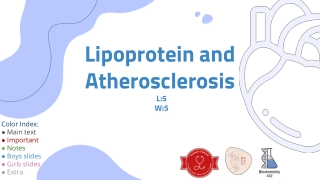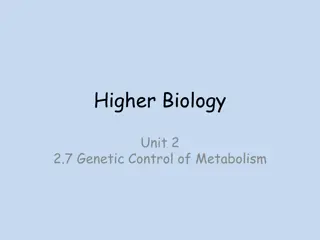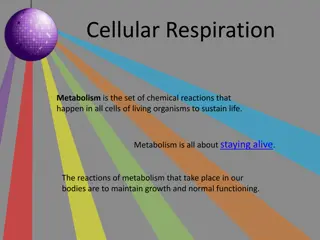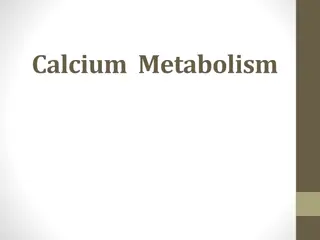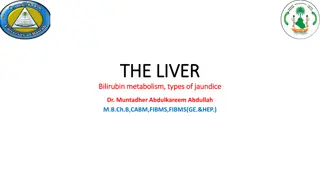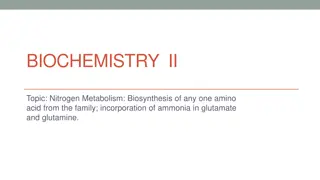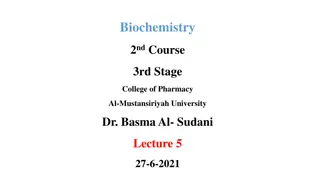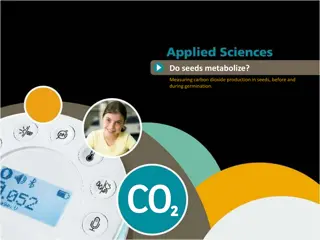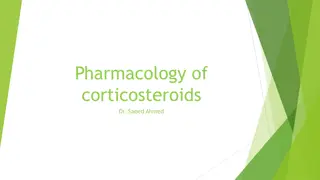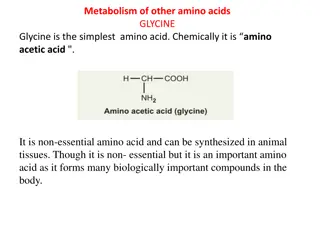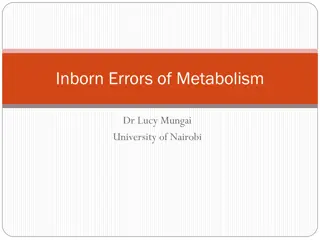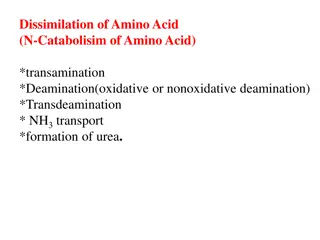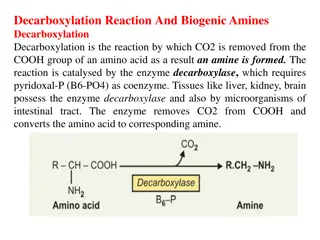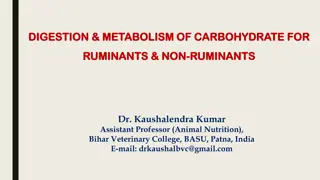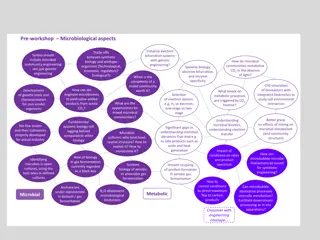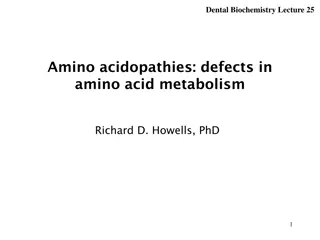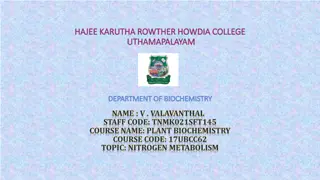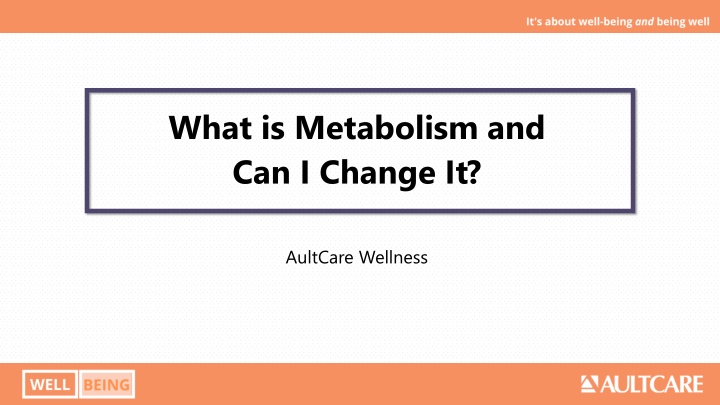
Metabolism and Energy Expenditure
Explore the concept of metabolism and its impact on daily energy expenditure. Learn how factors like muscle mass, genetics, and activity levels influence metabolism, and discover tools to calculate Resting Metabolic Rate (RMR) for weight management. Uncover the truth behind metabolism myths and facts to optimize your health and fitness goals.
Download Presentation

Please find below an Image/Link to download the presentation.
The content on the website is provided AS IS for your information and personal use only. It may not be sold, licensed, or shared on other websites without obtaining consent from the author. If you encounter any issues during the download, it is possible that the publisher has removed the file from their server.
You are allowed to download the files provided on this website for personal or commercial use, subject to the condition that they are used lawfully. All files are the property of their respective owners.
The content on the website is provided AS IS for your information and personal use only. It may not be sold, licensed, or shared on other websites without obtaining consent from the author.
E N D
Presentation Transcript
What is Metabolism and Can I Change It? AultCare Wellness
Defining Metabolism Metabolism refers to a range of biological processes taking place within your body s cells and how many calories it takes to do that work. This includes chemical reactions that happen within the body including: breathing, thinking, building and maintaining bone mass, and digesting food to turn into energy. We measure metabolism as the number of calories used to keep all of these processes going.
Myth or Fact Some people naturally have faster metabolisms. Fact. Research shows all things being equal, meaning sex, age, size, etc, there can be a range of plus or minus 20% in energy needs. Example: Person 1 (same age, sex, size, etc) may require 2,400 kcals while person 2 (same age, sex, size, etc) needs 2,800 kcals or just 2,000 kcals.
Key Differences How much lean muscle mass vs. fat is the biggest contributor to differences in energy needs (AKA metabolism). Genetics, age, size, and the functioning of one s thyroid, and even organ size, are other factors. The bigger you are, the more energy you will burn, because there are more cells to fuel. Cells are not as metabolically active as we age, but it may not be as soon as you think.
3 Components to Metabolism 1. Resting Metabolic Rate (RMR): accounts for 60-75% of daily energy expenditure. How many calories your body is burning while at rest. 2. Thermic Effect of Food: accounts for ~10% of daily energy expenditure. Amount of calories you burn chewing, digesting, and absorbing the food you eat. 3. Thermic Effect of Physical Activity: accounts for ~15-30% of daily energy expenditure. How many calories you burn by being active (including exercise, doing the dishes, fidgeting, etc.).
Gold Standard Gold standard for measuring total daily energy expenditure (physical activity, RMR, and thermic effect of food) is known as the Doubly Labeled Water Method. How does it work? Individuals drink water containing hydrogen and oxygen isotopes. Researchers then test their urine to determine how quickly the isotopes are flushed out, thus determining how fast or slow one s metabolism is.
RMR Calculators Factor in age, height, weight, gender, and then you will need to add an activity factor to determine energy needs to maintain, lose, or gain weight. https://www.bcm.edu/cnrc-apps/caloriesneed.cfm
Can I Increase my Metabolism? Strength training is the only proven thing to help significantly increase metabolism. In a peer reviewed study from Current Sports Medicine Reports, found that lifting weights can increase RMR by 7%. At rest, muscle uses approximately 3x more calories than fat. Should be incorporated 2+ days/week.
Can I Increase my Metabolism? continued Most important thing to focus on is getting enough protein! Not only is protein important for muscle growth and maintenance, it also requires more energy to digest compared to fat and carbs. 25%-30% of the calories consumed in protein is then used to break it down and process it. Consuming 25-30% of your daily calories from protein has been shown to increase metabolism by up to 80-100 calories per day. It also promotes satiety, and can help to prevent carb heavy/sugar cravings throughout the day. Be sure you are not eating too much protein as it can overtax your kidneys. Current RDA for adults is 0.8 per kg. Protein needs vary depending on disease processes, sickness, pregnancy, strength training goals. Discuss with an RDN to get accurate protein need recommendations.
Can I Increase my Metabolism? continued What about eating spicy foods? Diet trials have been done using the compound capsaicin (this is the compound that makes hot peppers hot). A study found that those that consumed 1 gram of cayenne pepper burned ~10 more calories over the course of 4 hours as compared to those that did not consume the pepper.
Brown Fat Brown fat helps you to burn calories by creating heat for your body to stay warm. It also helps in regulating glucose and fat metabolism. This fat sits around your neck, adrenals, kidneys, and heart and contains more mitochondria than white fat. Some recent research has shown that brown fat can burn up to 5x as much fat as white fat. It s important to keep this brown fat healthy by eating whole nourishing foods, exercising, or taking an ice bath. Capsaicin may also help in increasing the amount of brown fat in the body or by making the current brown fat more metabolically active.
Caffeine and Green Tea Caffeine is a stimulant so it can increase resting metabolic rate anywhere from 3-11%. One trial showed that adults who consumed 100 mg of caffeine (approx. the amount of caffeine in 8 oz cup of coffee) burned an extra 79-150 kcals/day. Too much caffeine can lead to high BP, dehydration, anxiety, etc. Always consume in moderation. Green tea has an antioxidant (EGCG) shown to increase brown fat stores, as well.
Does Metabolism Decrease with Age? Most think metabolism starts to slow when one hits their 30s. A recent study of 6,400 people, using the Doubly Labeled Water Test, found that metabolism remains steady from your 20s-60s. It then only drops about .7% each year after that. Hormonal changes can contribute to weight fluctuations. As well as lifestyle changes that happen throughout life (sedentary jobs, busy schedules, changes in food environment, etc.).
Other Factors to Consider with Weight Gain Medications Thyroid function (a deficiency lowers RMR) Chronic stress (lack of sleep, over-exercising, mental pressure, or anxiety) Decreases insulin sensitivity Increases appetite Raises blood pressure Decreases immunity
How to Ensure a Healthy Metabolism Avoid crash diets. Fad diets that significantly limit calories or removes entire food groups from your diet should be avoided. These diets can cause metabolism to slow or not function optimally. Stay hydrated! Proper hydration is important for metabolic processes to occur. Weight (in lbs) 2.2 = amount of fluid oz. per day one should consume. Too many caffeinated beverages can lead to dehydration. Don t skimp on sleep. Lack of sleep can lead to hormonal imbalance. May also lead to too much caffeine consumption and cause dehydration. As well as decreasing likelihood of engaging in any exercise due to fatigue. Try to get the recommended 7-8 hours each night.
Bottom Line Spicy food, coffee/green tea, and cold water plunging, can help with a small metabolism boost but nothing can outweigh the importance of consuming a whole food diet and incorporating cardiovascular and strength training exercise into your daily life.
Sources How much physical activity do adults need? | Physical Activity | CDC What Exactly Is Metabolism and Can You Change It? | EatingWell American Heart Association Recommendations for Physical Activity in Adults and Kids | American Heart Association

